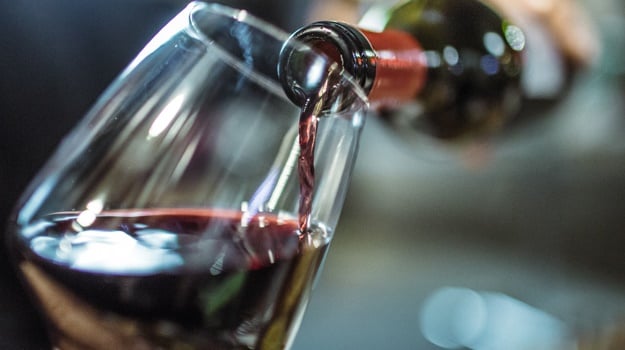
Lockdown restrictions imposed on the sale of alcohol reduced the trading year for Distell by nearly 20%, according to group CEO Richard Rushton.
The SA-based global drinks company released its reviewed full year financial results for the 12 months ended 30 June 2020 on Thursday. Some of its top brands include Amarula, Hunter's, Savanna, 4th Street, Klipdrift, Nederburg, Richelieu, Viceroy and J.C. Le Roux.
Distell group has donated a total of 180 000 litres of sanitiser, along with its Kenyan operations donating 105 000 litres of ethanol for the use of sanitisers to support the need for responsible trading in vulnerable communities.
Due to lockdown restrictions on the sale of alcohol, the group lost about 100 million litres in sales volumes and R4.3 billion in revenue, locally as well as abroad.
Over the financial year, domestic revenues decreased by 18.2% while volumes declined by 25.0%. The group generate a total of R24.5 million in revenues from the sales of ethanol and sanitiser in the reported period.
Reported EBITDA declined by 23.0% and headline earnings per share decreased by 64.0% to 235.3 cents. The debt-to-equity ratio was 48.9% at the end of the reporting period. Dividend payments have been temporarily suspended.
Distell employs nearly 5 000 people worldwide. During the lockdown, rather than cut jobs, it decided to reduce salaries, including that of executives and directors.
Attractive investment
According to Simon Brown, founder and director of investment website JustOneLap.com, Distell is still an attractive investment on the JSE. He says the knock it took due to the temporary alcohol sales ban was expected, but that sales will pick up. At the same time, price increases the group managed to push through before the pandemic started, helped.
One possible challenge Brown foresees is that Distell has a lot of premium brands and consumers are likely to "shop down" due to financial pressures caused by the impact of the pandemic and the current economic climate.
Distell group CEO Richard Rushton says they acted fast in strengthening the balance sheet and placed the safety of staff, key suppliers and customers first.
"We are cautiously optimistic and will focus on the industry and government working together to restore the economy and our industry, while trading responsibly. We also support a zero-tolerance for drinking and driving," says Rushton.
"We don't know whether, if there should be a second spike in coronavirus infections, a second ban on alcohol sales might be implemented. Yet, we hope that both government and the industry learnt from the experience."
He adds that it was clear that people turned to illegally sold sources of alcohol during the ban, making it ineffective. That is why, in his view, there should rather be mechanisms put in place to ensure continued responsible alcohol-related trade.
"Sadly, illicit trade has grown, and we would have to work with government to tackle that," says Rushton.
According to Claude van Cuyck, executive director and portfolio manager at Denker Capital, overall, this was an extremely tough result, but it is largely driven by the impact of the lockdown where the government's prohibition on alcohol sales had an obvious impact, particularly in SA.
He says the 22.5% decline in group volumes had a knock-on effect on revenue and profits with reported headline earnings per share declining by 64%. In his view, it is, however, less relevant to focus on the current result and more important to look at the potential recovery.
"As the prohibition has been lifted, you should see a gradual recovery in volumes and profits, but it is likely to take a few years to get profits back to pre-Covid levels. Outside of SA, although Africa also experienced challenges, in particular with Ciders and RTDs (ready to drink) and wine volumes that were under pressure," says Van Cuyck.
"The Spirits portfolio did relatively well. The long-term strategy in Africa remains sound and they continue to invest in building out the African strategy. Overall, the business has strong brands, good management and a sound balance sheet. It will, however, take some time to recover from the devastating impact of the hard lockdown and the impact of prohibition."
Segments
Over the financial year, the spirits segment recorded some growth in SA after the lifting of the first prohibition of alcohol sales while gin and vodka brands performed well in a competitive environment, according to a statement.
The broader wine category was also impacted by restrictions, although it saw a resurgence in consumer purchases following the lifting of restrictions.
Increased competition and discounting in the growing ready-to-drink (RTDs) category continued over the financial year. Savanna kept up "strong momentum " against competitors, with a focus on building brand equity over aggressive price discounting. New innovations in Esprit and Savanna Non-Alcoholic recorded strong performances in the period under review.
"Consumers will look for convenience and value, so, our portfolio and price remain strengths," says Rushton. He is especially pleased that the execution on new innovations is starting and will be carried on throughout 2021.
Other markets
In Rushton's view, the group's measured investments into key African markets have provided a resilient performance alongside its focused whisky portfolio in international markets - even in the midst of Covid-19 challenges.
"Our game plan for the rest of Africa remains a priority. We want to expand our local route-to-market on the continent with local brands in key mainstream occasions," says Rushton.
The Africa region contributed 61.0% to the group's foreign revenue during the financial year.
Forecast
"Looking ahead, we anticipate a tough domestic environment with falling disposable income and increasing unemployment our key concerns," says Rushton.
"We are, however, confident of the way we are managing the business to remain flexible and recession-proof. Our more focused and diversified portfolio of brands along price points, occasions and innovation in response to consumer trends will enable us to position ourselves well for any recovery."